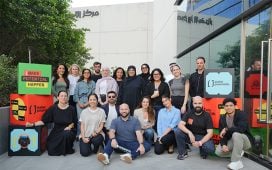In the modern experiential marketing space of the MENA region, the traditional metric of Return on Investment (ROI) has evolved to encompass a more nuanced and meaningful measure: Return on Engagement (ROE).
Today’s discerning consumers crave genuine connections. It isn’t enough for brands to simply shout their messages from the rooftops. Instead, they need to engage in dialogue, listen and cultivate genuine relationships.
The second Campaign Saudi Briefing event of the year will be taking place in Riyadh on 12th October 2023. A variety of panels and speakers will be discussing the themes of media and marketing. For more details, click here.
New trends
The landscape of ex
To continue reading this article you need to be registered with Campaign. Registration is free and only takes a minute. Register Now or sign in below if you already have an account.









